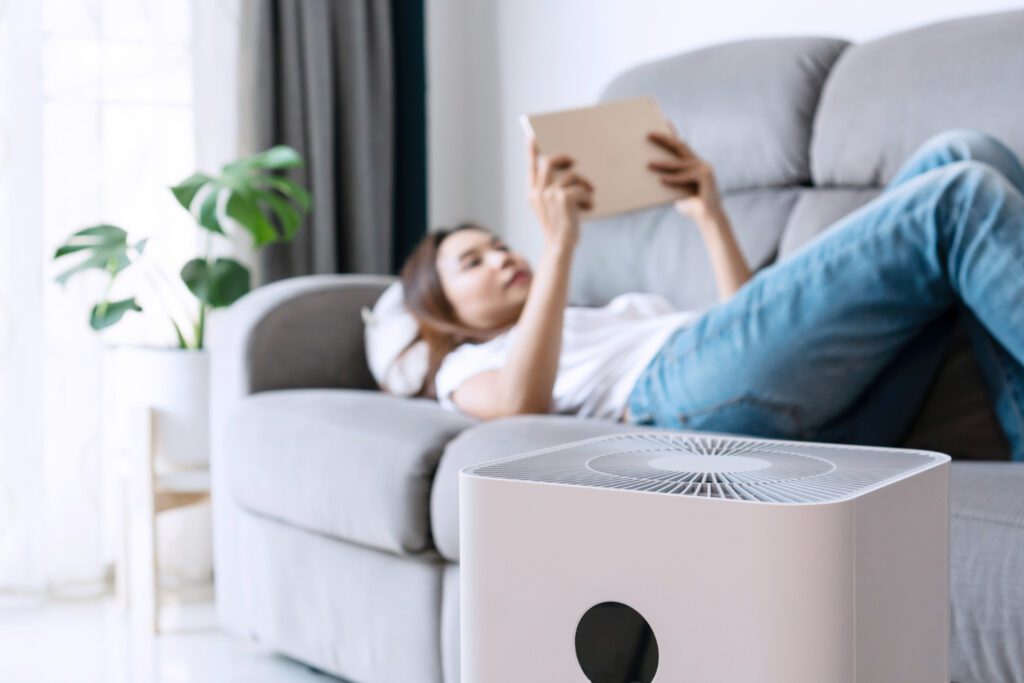Indoor air quality is a vital aspect of maintaining a healthy living environment, especially for families. Good air quality means fewer pollutants and irritants in your home, which can directly affect both physical health and overall comfort. As families spend a significant amount of time indoors, it becomes increasingly important to focus on air quality to ensure their well-being.
In Gilbert, many families face challenges with maintaining clean indoor air. Contaminants like dust, mold, and pet dander can quickly accumulate and lead to discomfort or health issues. Poor indoor air quality doesn’t just affect the air you breathe; it can lead to a variety of health problems and make your home less comfortable. Understanding these issues can help you take the necessary steps to create a healthier indoor environment.
Common Sources of Indoor Air Pollutants
Indoor air can become polluted by various sources, many of which are found in everyday households. Recognizing these pollutants is the first step to addressing them:
– Dust: Accumulates from various sources, including skin cells, fabric fibers, and dirt brought in from outside. Dust mites thrive in dusty environments and can trigger allergies.
– Pet Dander: Tiny flecks of skin shed by cats, dogs, and other animals with fur or feathers. These allergens can cause respiratory issues for some people, especially those with allergies.
– Mold: Can grow in damp areas of the home, such as bathrooms or kitchens. Mold spores released into the air can cause allergic reactions and other health problems.
Outdoor pollutants can also make their way inside, compounding the problem. Opening windows and doors may bring fresh air in, but they can also let in pollen and other irritants, especially during certain seasons. Families can face a significant challenge in managing these various sources of indoor air pollution. Addressing them requires a proactive approach to cleaning and maintaining a healthy home environment, helping to mitigate their impact on your family’s health and comfort.
Health Impacts of Poor Indoor Air Quality
Poor indoor air quality can have a significant effect on health, often triggering or exacerbating respiratory illnesses. Many people suffer from conditions like asthma and allergies, which can be made worse by irritants found indoors. When dust, mold, or pet dander populate the air, they become a constant source of discomfort for those with sensitive respiratory systems. Symptoms can range from mild sneezes to severe asthma attacks, affecting daily routines and overall quality of life.
Beyond respiratory problems, poor air quality can lead to other health issues. Headaches, fatigue, and irritation of the eyes, nose, or throat are common complaints. These issues may not always be directly attributed to air quality, making them harder to diagnose and manage. However, when these symptoms are frequent and consistent, the air quality in the home may be playing a role.
Children and elderly family members are particularly vulnerable. A child’s developing respiratory system can be more reactive to pollutants, while older adults might have pre-existing health conditions that are worsened by poor air quality. Ensuring a safe and clean environment is crucial for protecting these vulnerable groups.
How Poor Indoor Air Quality Affects Comfort
Uncomfortable living conditions are another consequence of poor indoor air quality. Pollutants in the air can cause unpleasant odors, which affect the enjoyment of your home. These odors can come from various sources, including cooking smoke, mold, or pet-related activities. While guests can sometimes overlook visual clutter, an unpleasant smell is much harder to ignore.
Another issue is the imbalance between dry and humid air. Too much humidity can lead to mold growth, while excessively dry air can cause skin irritation and damage to furniture. These imbalances make it difficult to achieve a comfortable atmosphere. Cleaner air helps maintain a balanced environment, promoting well-being and relaxation for everyone in the home.
Ways to Improve Indoor Air Quality
Improving air quality involves several strategies that can be implemented effectively with professional help. One of the most popular solutions is the use of air purification systems. These systems remove contaminants from the air, allowing families to breathe easier by reducing allergens and other irritants.
Regular HVAC maintenance is also crucial. An efficient system helps control air quality by circulating clean air and maintaining proper humidity levels. It ensures that the air in your home stays fresh and pollutant-free. Our professionals are equipped to assess your specific needs and recommend the best options for your situation.
Ensuring Healthy and Comfortable Living Conditions
Maintaining good indoor air quality is important for health and comfort. It’s the key to creating a home environment where you can feel relaxed and safe. Addressing air quality issues now prevents potential health problems and enhances your family’s comfort for the future.
If you’re concerned about the air quality in your home, seeking professional guidance is a wise step. Expert assessment and intervention can provide reliable solutions tailored to your needs. Feel free to reach out to Agape Air Heating & Cooling for comprehensive indoor air quality services. We are here to help you create a healthier, more comfortable living space in Gilbert.
If poor air quality has affected your family’s comfort in Gilbert, know that professional support could help restore balance to your home. Consider our indoor air quality service in Gilbert to address the challenges of unwanted pollutants and create a refreshed living space. For a quick estimate or to book a service visit, please contact us today.


